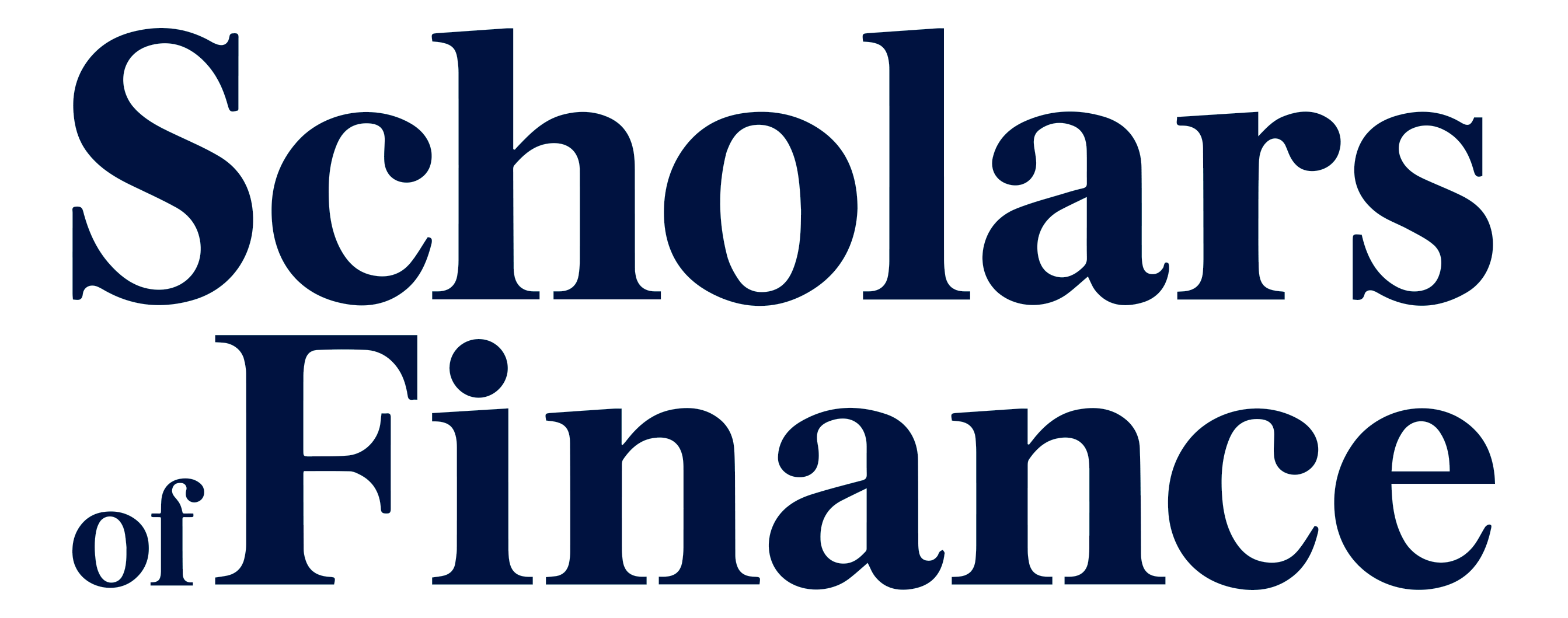
You may be sick of hearing about polarization, or perhaps experiencing it, but this (understandable) exhaustion eventually gives way to apathy which ultimately resigns our society to a deep, harmful division. So, I encourage you to read on, because hope is only lost when we give up on the challenges we face and become complacent. I truly believe that a major shift in bridging divides is possible, but only if each individual works at it, practicing new habits in their everyday interactions. In order to form these new habits, we must first remember and reflect on shared values. The six Scholars of Finance values provide a strong foundation and starting point for a much needed transformation in how we treat one another. In this blog post, I explore the different ways in which our principles guide us through the tough and often uncomfortable conversations with which we are consistently confronted, from a casual classroom debate to a workplace discussion about current events. I also take what I have learned from others who have had to toe the difficult line of controversy and compromise in politics, one of the most heated arenas for these conversations.
Finally, I want you to know that I am no stranger to holding opposing viewpoints in tension. As someone who grew up in a conservative, Christian home and attended a liberal, secular school, I spent each day going back and forth between opinions, forming my own from what I heard my parents, teachers, and peers say. I write this not to force my own personal beliefs on anyone, but rather to help you navigate everyday situations such as my own with grace, humility, respect, and, hopefully, success.
When it comes down to it, we are all human beings living on one, shared planet. When we look at the bigger picture, we can all realize that it is much more important to have respect for one another, to care for one another, and to work together for the greater good than to bombard our co-worker or family member with a barrage of statistics to explain our point of view and shut theirs down. However, holding respect for others’ viewpoints is often easier said than done. In fact, in the everyday interactions we have, we all fall into the trap of needing to be correct, of needing to convince others of our point of view, and of needing to get the last word in. Sadly, when these temporary desires take over, our values start to fade into the background, and we become creatures of the moment, easily swayed by the temptation to “win” the debate. However, this is something that when we assess rationally and outside of the heat of the moment we find to be unsustainable. If we live all of our lives trying to simply prove our point to others with the sole purpose of “winning” without listening to others’ perspectives, we will get nowhere. No one is right 100% of the time, so why go through life with that false perception, when we can instead learn and grow by listening to others? For a more concrete example of how this plays out and is a benefit to businesses, you can observe the 20% increase in innovation brought upon by diversity of thought, as discussed in a Deloitte article. In a workplace, we need to be able to harness those diverse perspectives effectively, and thus, respectfully.
Each SoF Value has principles which speak to this issue quite well, and offer simple yet profound advice for how to live a life of civility, conversation, and compromise.
- Integrity
- Speak the truth at all times.
This is the only way to get anywhere with difficult conversations. Both parties need to speak the truth, whether that be honestly sharing a personal experience, or backing up opinions with factual data.
- Compassion
- Foster relationships with respect and empathy.
Maintaining respect throughout difficult conversations is absolutely critical. Without a foundational level of respect and empathy, conversations about hot button issues can quickly escalate to heated debates or even full-scale arguments.
- Humility
- Ask for and share honest feedback regularly.
Conversations within personal relationships or in the workplace will often necessitate a discussion about where things need to be improved, and are a perfect setting for practicing civility within difficult conversations. But we first need to be open to that feedback before beginning the conversation.
-
- Curiosity
- Seek first to understand, then to be understood.
- Curiosity
- Pursue and embrace diverse perspectives.
We live in an incredibly diverse world, and we should take advantage of how much we can learn from each other. We all grow when we step out of our comfort zones, hear a new perspective, listen carefully and begin to question our previously held views. Perhaps this leads to a change of mind, or simply solidifies our views if we have found that we disagree with the fundamentals of the opposite argument. No matter the outcome, the key is to listen to someone else’s reasoning behind their view before making a hasty judgement or interjecting with our own opinion.
- Impact
- Operate patiently and think long term.
Ultimately, when we need to have a serious conversation with someone important to us (professionally, personally, etc.), there is no guarantee that everything will be worked out in a single chat. These discussions could take months or even years, and we need to be patient with ourselves and with one another.
- Courage
- Stand up for what you believe is right.
While the best practice is to listen to others seriously and consider what they have to say, at no point in this process should you compromise your own beliefs and values. Compromise on common ground, but, if after carefully considering all perspectives with an open mind, you still hold the same views, don’t compromise on what you truly believe is right.
In addition to our SoF values offering guidance, we can also learn from leaders within politics about how they handled polarization. I attended a Zoom lecture/Q&A with Condoleeza Rice, former Secretary of State and National Security Advisor, who gave incredible insight into this exact topic. She explained how critical it is to be a good listener in order to see where there is common interest and overlap, which should be the most important part of a controversial conversation.
Chris Campbell, the former Assistant Secretary of the Treasury for Financial Institutions and majority staff director for the U.S. Senate Committee on Finance (which he held among other high ranking government roles), spoke to SoF students and shared his own experience balancing agendas and perspectives which were definitely at odds. He emphasized always being honest– no matter who it is you are speaking with, and to fight the instinct of thinking poorly of someone for simply having a different perspective.
Lanhee Chen, a political campaign veteran, who served as the policy director for the Romney-Ryan campaign, maintains a similar perspective, and believes in beginning the process of these discussions by agreeing on a problem statement. For example, if both a Democrat and a Republican can agree that healthcare costs are too high in our country, that is a place of common ground from where they can begin, and then they can work together to find a solution.
While it has been far easier to write this out than to put it into regular practice, I genuinely believe that if we listen carefully, assume best intentions and think well of the person across the table from us, and start from a place of common ground, we can actually begin to make progress. Remember, this doesn’t just apply to politicians; it applies to you while conversing with your dad who holds the exact opposite political views as you, to your colleague when you need to revamp your company’s sales strategy, and to your friend at dinner when she brings up the local elections.
In summary, remember that you and everyone around you are merely humans. You are humans who make mistakes, who have had countless views thrown at you by the media, school, and family for as long as you can remember, and who are just trying to do the best for yourself and those around you. We are all going to mess up on this journey, but let’s mess up together, be understanding, and find common ground through civil discourse and legitimate compromise—and, most importantly, let’s do it all with genuine respect for one another.
Further Reading + Resources:
- The Importance of Diversity of Thought (article)
- Is Civil Discourse Dead? A Conversation with Robert George and Cornel West. (video)
- The Case for Civility by Os Guiness (book)
- Respecting Other People’s Opinions: Encourage Dialogue, Not Hostility (article)
- Why Diversity of Thought is the Key Ingredient for Better Business (article)
If you have questions, comments, or concerns, feel free to reach out to the author at: isabella@scholarsoffinance.org or bella17@stanford.edu.






 “Um… I-” I stuttered as my interviewer raised his eyebrow at me. I felt the heat rising to my face slowly until words clumsily stumbled out of my mouth, barely coherent. It was transparent to the four upperclassmen in the room grilling me that I was grossly underprepared. The next hour crept by, each question stinging me harder than the latter. My lack of knowledge was apparent. Finally, the hour was up, my torture was over. I gathered my resume and stumbled out of the room, frustrated. It was the first month of business school and I was already struggling.
“Um… I-” I stuttered as my interviewer raised his eyebrow at me. I felt the heat rising to my face slowly until words clumsily stumbled out of my mouth, barely coherent. It was transparent to the four upperclassmen in the room grilling me that I was grossly underprepared. The next hour crept by, each question stinging me harder than the latter. My lack of knowledge was apparent. Finally, the hour was up, my torture was over. I gathered my resume and stumbled out of the room, frustrated. It was the first month of business school and I was already struggling.


 Lately, I’ve been thinking a lot about the world as a singular, integrated entity—one free of borders, restrictions, or individual nations. Rather, a massive unit of free-flowing thought, boundless inspiration, and limitless ideas. With our current circumstances, how could I not? No matter which corner of the Earth you hail from, you are likely to be one of
Lately, I’ve been thinking a lot about the world as a singular, integrated entity—one free of borders, restrictions, or individual nations. Rather, a massive unit of free-flowing thought, boundless inspiration, and limitless ideas. With our current circumstances, how could I not? No matter which corner of the Earth you hail from, you are likely to be one of 
Recent Comments